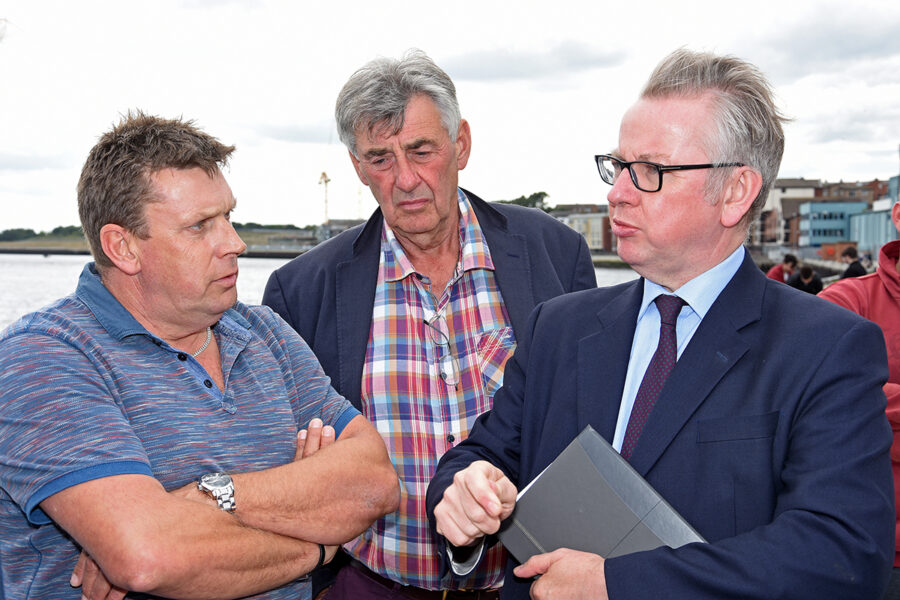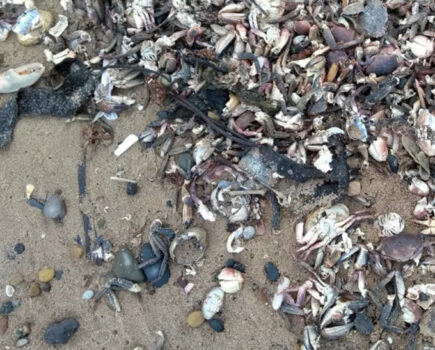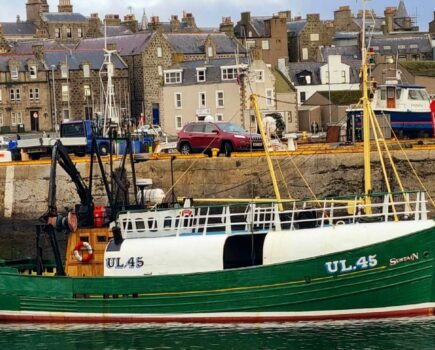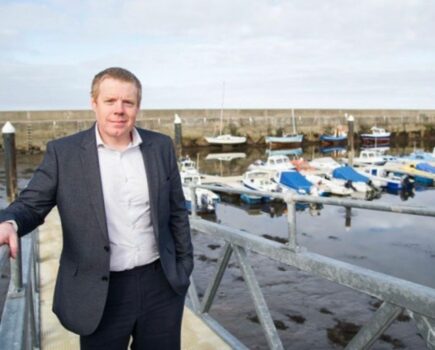Fisheries Bill: ‘watershed moment’ for industry
By Michael Gove, Secretary of State
Some of my earliest memories are of joining my dad at the fish merchant’s business he ran in Aberdeen.
It was set up by my grandfather, and generations of my family before him had made their living from the sea.

Secretary of State Michael Gove, pictured in 2017, when he spent a full day in North Shields at the invitation of Fishing for Leave.
But in recent decades our fishing industry has been in decline and coastal communities have suffered from EU rules.
Today that changes as we begin the formal legal process for regaining control of our seas from Brussels.
By leaving the European Union we can once again operate as an independent coastal state, under international law.
For the first time in over 40 years, we will get to decide who comes to fish in our waters, and on what terms.
More fish for British and Northern Irish boats means more money being earned by our fishermen, and the transformation of hard-pressed coastal communities.
It is a watershed moment.
Brexit allows us to cut loose from the Common Fisheries Policy, which has choked the life from so many fishing communities.
The CFP does have some admirable aims. Who would argue with fishing and aquaculture being ‘environmentally, economically and socially sustainable’? Or with the policy fostering a ‘dynamic fishing industry’ and ensuring a fair standard of living for fishing communities? No one.
But in practice there’s little that’s fair about the CFP. As fishing communities the length and breadth of these Isles so bitterly attest, it has failed them repeatedly.
Controversial fishing quotas are decided using an arcane principle of ‘relative stability’. In essence, what we can catch is based on 1970s-era data with little relevance to current fish stocks.
Then there’s the issue of ‘equal access’ for all fishing vessels registered with the EU fleet. Under the CFP, the exclusive economic zones (EEZs) of all member states are defined as European waters.
Ours is one of the biggest EEZs in Europe – which means that ships from elsewhere in the EU take far more fish than the UK fleet. In cash terms, vessels from other member states landed £521 million worth of fish and shellfish from UK waters, on average, between 2012 and 2016. Conversely, the British catch from the waters of other EU countries came to just £106 million.
Little wonder livelihoods have been devastated.
Brexit gives us the chance to manage our waters carefully and responsibly – more so than has been possible under the CFP. Consumer appetite for fish is growing – another compelling reason to look after our stocks and habitats.
Our Fisheries Bill will help the government meet its 25-year Environment Plan commitment to build an even more sustainable industry for future generations, and to care for the marine environment that is so crucial to the nation’s health and prosperity.
We do not yet know the outcome of the UK’s negotiations to withdraw from the EU or on a future economic partnership, but we have been clear that market access for fisheries products is separate to the question of fishing opportunities and access to waters. The Bill will give us the powers to implement the result of those negotiations.
New schemes will help England make the most of the green Brexit dividend, with new powers to help our industry comply with measures to end the wasteful discarding of fish and also ensure that the additional quota we receive will benefit our fishing communities.
Close co-operation is key – with our friends and fellow administrations in Scotland, Wales and Northern Ireland, and also with our European neighbours. Outside the EU, sea-faring nations reach fishing agreements that suit everyone. Post-Brexit we will do the same –because we want to, not because we must.
Our Fisheries Bill puts us back in control of one of our most precious national assets. And that’s a sea-change we can all welcome.








